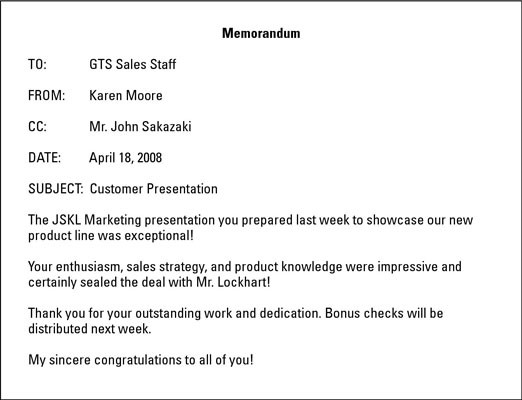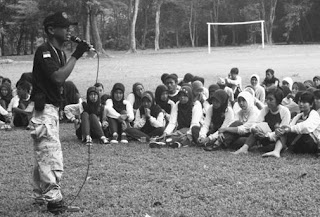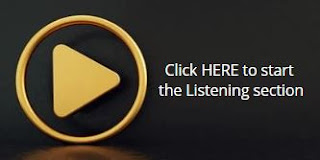Answer the following questions by choosing the best answer A, B, D, or D.I. Sentence Completion
1. Battery-operated reading lamps ... very well right now.
- sale
- sold
- are selling
- were sold
2. In order to place a call outside the office, you have to ... nine first.
- tip
- make
- dial
- number
3. We are pleased to inform ... that the missing order has been found.
- you
- your
- yours
- yourself
4. Unfortunately, neither Mr. Sachs ... Ms. Flyynn will be able to attend the awards banquet this evening.
- but
- and
- nor
- either
5. After the main course, choose from our wide ... of homemade desserts.
- varied
- various
- vary
- variety
6. One of the most frequent complaints among airline passengers is that there is not ... legroom.
- enough
- many
- very
- plenty
7. Faculty members are planning to ... a party in honor of Dr. Walker, who will retire at the end of the semester.
- carry
- do
- hold
- take
8. ... our production figures improve in the near future, we foresee having to hire more people between now and July.
- During
- Only
- Unless
- Because
9. The prime minister is expected to arrive at the convention hall at ... 7.00 P.M.
- approximated
- approximates
- approximate
- approximately
10. As the filming location has not yet been ..., the release date has been postponed.
- detained
- determined
- delayed
- deleted
11. Extreme ... should be used when the forklift truck is being operated.
- caution
- cautioned
- cautiosly
- cautions
12. The country hospital is currently ... volunteers to staff the reception.
- look to
- looking for
- looking around
- looking into
13. We are a major international company with a growing number of ... in North America.
- inferences
- instances
- influences
- interests
14. The Executive Council of the Fashion Buyer’s Congress is ... of fifteen members from various branches of the fashion industry.
- compose
- composing
- composed
- to compose
15. Though their performance was relatively unpolished, the actors held the audience’s ... for the duration of the play.
- attentive
- attentively
- attention
- attentiveness
16. Savat National Park is ... by train, bus, charter plane, and rental car.
- accessible
- accessing
- accessibility
- accesses
17. Replacing the office equipment that the company purchased only three years ago seems quite ....
- waste
- wasteful
- wasting
- wasted
18. On ... employees reach their peak performance level when they have been on the job for at least two years.
- common
- standard
- average
- general
19. If you send in an order ... mail, we recommend that you phone our sales division directly to confirm the order.
- near
- by
- for
- on
20. Rates for the use of recreational facilities do not include tax and are subject to change without ....
- signal
- cash
- report
- notice
21. We conduct our audits in accordance ... generally accepted auditing standards.
- of
- with
- in
- across
22. The Director of Educational Programs works collaboratively with the Ministry of Education to ... that the programs are meeting the needs of the institution.
- ensure
- define
- accept
- imply
23. Armstrong has the ... management team of the three companies under consideration.
- impressive
- more impressive
- impressively
- most impressive
24. There are over thirty keyboard commands that can prompt word-processing procedures, but common usage ... only a few.
- involves
- receives
- subscribes
- corresponds
25. The recent storms have led to the ... closure of our overseas office.
- temporal
- temporary
- temporarily
- temporaries
26. “Accounts receivable” is money owed to a company, ... “accounts payable” is money owed by the company to creditors.
- whereas
- otherwise
- such as
- in order that
27. Cooks must remember that some raw foods are very ... and should be refrigerated or chilled until ready to be eaten or cooked.
- peripheral
- perishable
- periodic
- permanent
28. If savings could have been made elsewhere, we ... to give financial support to local community service organizations last year.
- continue
- continued
- has continued
- would have continued
29. The telecommunications department is completing a detailed ... of each factory site to determine the types of equipment and features needed in each area.
- elaboration
- evolution
- evaluation
- expansion
30. Proposed changes that are not ... with existing safety regulations will not be considered.
- dependent
- compliant
- relating
- supportive
II. Short Conversation
Questions number 31 - 33 refer to the following dialogue.| Dina: | We need to hire a temporary assistant to help us with this project until our regular assistant fully recovers. |
| John: | Yeah, it will take him at least 2 months till he’s able to return to his duties. |
| Dina: | I know, that’s why I hate it when people around me become indispensable. It just makes me feel helpless sometimes. |
| John: | In the meantime, why don’t we try finding someone from our staff to replace him? That way we’ll avoid the training period since all staff know, more or less, how things run around the office. |
31. What is the problem with Dina's assistant?
- She needs to hire a temporary assistant.
- He feels helpless.
- He is sick.
- He doesn't want to help.
32. What does Dina imply about her assistant?
- She hates him.
- He is indispensable.
- He is helpless.
- He lives around the office.
33. What are they planning to do?
- Avoid the training period
- Run around the office
- Find someone from their staff to replace the assistant
- Hire a temporary assistant
Questions 34 - 36 refer to the following conversation.
| Levi: | When did you say you are going on that business trip again? |
| Siska: | Well, I’m leaving on Wednesday evening, but I won’t be back until Tuesday. |
| Levi : | The conference is on for two days isn’t it? |
| Siska: | Well, yes, but since my husband is coming with me this time, we thought we’d take Monday off and spend the weekend by Lake Como near Milan. We’ve heard so many good things about it, and with my new position we haven’t had the chance to go on vacation in the last couple of years. |
34. How many days will Siska be away from work?
- Three
- Four
- Five
- Six
35. When is the conference?
- Wednesday and Thursday
- Thursday and Friday
- Saturday and Sunday
- Monday and Tuesday
36. What can be inferred about Siska?
- She is usually too busy to go on vacation.
- She has been to Lake Camo before.
- She is going to the conference alone.
- She often goes on vacation.
Questions 37 - 39 refer to the following conversation.
| Romi: | I think we need to ask the Staff Director to order two new desks for us. Mine is very small,
while yours is very big and takes up too much space. And we could do with new wallpaper as well. |
| Ulfa: | That’s fine by me, but the company is on a very tight budget this year, so they might not approve any of it. We’re lucky we’ve still got a job. |
| Romi: | Why don’t you draft a formal request, and we’ll see what happens? |
| Ulfa: | Sure! There might even be some old desks available in the warehouse that would suit us perfectly. |
37. What does Romi want to do?
- Buy new desks
- Make his table larger
- Take up more space
- Renovate his office.
38. What does Ulfa imply about the company?
- It doesn't have lot of money to spend.
- It sells new wallpapers this year.
- It will approve their requests.
- It gives them a new job in the office.
39. What does Romi ask Siska to do?
- Find old desks in the warehouse.
- See what will happen to their desks.
- Save more office space.
- Write a formal request
Questions 40 - 42 refer to the following conversation.
| Timmy: | I ordered some products from your company a week ago but they haven’t arrived yet, although you had assured me you would ship them one or two days after I placed my order. |
| Voice: | Give me a second, sir, to track down your order, ... yes, here it is. The products were shipped on September the 19th, that’s a day after you placed your order. The shipping number is 335601342 and the courier company is BLC. |
| Timmy: | Oh, OK. I’ll try contacting them to find out what’s taking them so long to deliver the package. |
| Voice: | My guess is that they’ve got problems with the customs office. In any case, call me if I can be of any further assistance. |
40. Why did Timmy call?
- He wanted to place an order.
- He couldn't find the order shipping number.
- His order hadn't arrived.
- He wanted to cancel an order delivery.
41. When were the products sent?
- September 12th
- September 18th
- September 19th
- September 20th
42. What will Timmy most probably do afterwards?
- Call the courier company.
- Cancel the shipment.
- Solve the customs problems.
- Go to the customs office.
Questions 43 - 45 refer to the following conversation.
| Operator: | Mr. Lee isn’t coming in today. Can I take a message? |
| Anita: | I’d rather talk to him in person. Do you know when he’s coming back? |
| Operator: | I’m afraid he’s not coming in for the next couple of weeks. He’s on a sabbatical to work on his dissertation. |
| Anita: | Well, in that case could you please tell him that I’ve reviewed his article and that he needs to contact me to go over my revisions ASAP? Unless you can give me his home number and I’ll contact him in person. |
43. Why isn’t Mr. Lee in his office?
- He is reviewing a dissertation.
- He is finishing a revision project.
- He's on vacation.
- He's on a sabbatical leave.
44. What does Anita want Mr. Lee to do?
- Give her his phone number.
- Contact her.
- Review his article.
- Check her revisions.
45. How long will Mr. Lee be away?
- A year
- Several weeks
- Six months
- A couple of days
III. Reading Comprehenesion
Questions 46 - 49 refer to the following news.
Jayapura, Papua (ANTARA) - The Indonesian Army's Mi-17 helicopter that crashed on Mount Mandala in Oksop Sub-district, Pegunungan Bintang District, Papua Province, and killed 12 people aboard, was owing to bad weather, according to an official.
"I think the pilot had attempted to re-direct the helicopter to the original location due to foggy weather, but when the helicopter turned, it crashed into the mountain," Major General Herman Asaribab, commander of the Regional Military Command (Pangdam) XVII/Cenderawasih, remarked here on Saturday.
The helicopter reportedly lost contact during its flight from Oksibli to Sentani on June 28, 2019. Since the day it went missing, search efforts have been steadily made to locate the helicopter by involving a Bell Helicopter 206 and Bell Helicopter 412 bearing registration number HA-5177.
However, the SAR's efforts to locate the missing helicopter have been hindered by factors, including erratic weather conditions and difficulties on ground due to inaccessibility to roads.
46. What is the news about?
- Mount Mandala in Oksop Sub-district
- A helicopter crash in Papua Province
- Indonesian Army's Mi-17 helicopters
- The bad weather in Pegunungan Bintang
47. According to the text, what was the cause of the flight accident?
- Inaccessibility to roads
- Difficulties on ground
- An official's decision
- Bad weather
48. These are the factors that made the attempts to find the helicopter difficult, EXCEPT ....
- weather conditions
- difficult terrain
- human errors
- inaccessibility to roads
49. "I think the pilot had
attempted to re-direct the helicopter to the original location ...."
What is the synonym of the underlined word?
- stopped
- repaired
- continued
- tried
Questions 50 - 53 refer to the following memo.
50. Who sent the above memo?
- GTS Sales Staff
- Karen Moore
- Mr. John Sakazaki
- Mr. Lockhart
51. What does the memo talk about?
- Sales staff enthusiasm
- A new product
- Sales strategy
- A marketing presentation
52. According to the memo, what will GTS Sales Staff most likely receive in the near future?
- Bonus checks
- Customer presentation
- A congratulatory letter
- A new product
53. Who is Mr. Lockhart?
- Sales manager of GTS
- A supplier
- A customer
- Karen Moore's worker
Questions 54 - 57 refer to the following letter.
Dear Mr. Komar,
We are sorry to learn that the vacuum cleaner you recently ordered arrived with several missing parts. Thank you for returning it promptly.
A replacement model of the same style, color, and price is being shipped to you and should arrive in two days' time. It has been carefully inspected to ensure that you will not be troubled again with a similar problem.
We sincerely regret the delay and inconvenience that has caused you, but we hope that you will be pleased with your new cleaner.
Thank you for your patience.
Sincerely,
Agung
Customer Relations
54. What is the purpose of the letter?
- To address a complaint
- To confirm an order
- To reply to a complaint
- To order the missing parts
55. What was the problem with the order?
- It was delayed.
- It should be returned soon.
- It hasn't been received.
- There were some missing parts.
56. What might have caused the problem?
- The order delivery was not on time.
- Mr. Komar was not satisfied with the product.
- The order was not carefully inspected.
- The replacement had a different style and color.
57. What should Mr. Komar do after receiving the letter?
- Make another complaint for the delay
- Reply to a complaint from Agung
- Contact the Customer Relations staff
- Wait until the replacement arrives
Questions 58 - 60 refer to the following letter.
Dear Mr. Jiggit,
Your resume is very impressive, but we are no longer hiring full time workers. Like many companies, we are trying to operate with a minimum staff, hiring temporary office workers.
When the workload increases, or when we need people for a specific project, we look for part time workers.
Should such a need arise, we will contact you.
With every good wish.
Sincerely yours,
Sa Osheroff
58. What employment practice does this company share with others?
- Hiring temporary workers
- Hiring full-time workers
- Training its own workers
- Asking retirees to return
59. When are these workers usually hired?
- When costs are high
- When the workload increases
- When employees are ill
- When they operate with a minimum staff
60. Mr. Jiggit probably wrote to the company ....
- to inquire about a part time job
- to ask about company benefits
- to look for temporary office workers
- to seek full-time employment
















